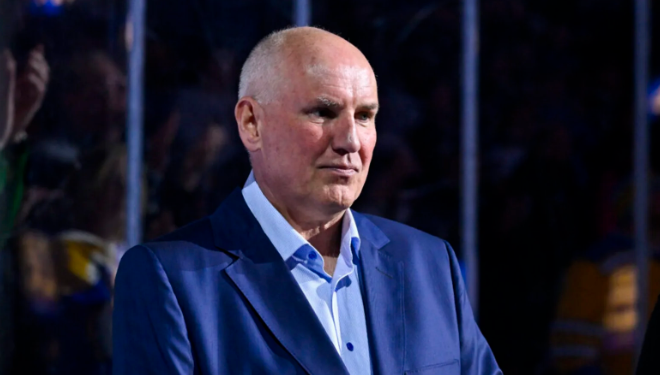The Montreal Canadiens have had a challenging time striving for relevance in the Atlantic Division, but there are some standout players making an impact. One of those players is Cole Caufield, who is currently tied for the league lead in goals with nine. Another key contributor is Mike Matheson, whose nine assists in ten games highlight his strong performance. However, the focus here is on Nick Suzuki, the team captain. Suzuki is motivated to lead the Canadiens to success, especially since early accomplishments might secure him a spot on the Team Canada roster for the 2025 4 Nations Face-Off. Let’s explore Suzuki’s contributions to the team and the broader implications.
A significant aspect of Suzuki’s impact is his role on the first line. Caufield’s success can be attributed to Suzuki’s well-rounded 200-foot game and his tenacity with the puck. The pair, alongside their dynamic winger, plays with impressive speed that often challenges opposing defenses. Even with Juraj Slafkovsky’s injury affecting their linemate situation, Suzuki’s line remains effective, with Kirby Dach stepping up in his absence.
Suzuki consistently displays a strong work ethic, always skating hard and staying engaged in plays—even against top competition. Last season, he elevated his performance, achieving a career-high of 77 points, winning 52.6% of his faceoffs, and averaging over 21 minutes of ice time per game. He is now recognized as one of the premier two-way centers in the league. Although he may not be the tallest player, standing near Sidney Crosby’s height and outweighing him by a notable margin, he proves to be a formidable presence on the ice.
Suzuki’s versatility makes him an invaluable asset for the Canadiens and any lineup. He excels in various situations, contributing significantly on the power play and penalty kill, and he often takes crucial defensive zone faceoffs—even if coach Martin St. Louis prefers to utilize him primarily in offensive scenarios. With a substantial percentage of offensive starts and defensive responsibilities combined, it’s clear why he’s viewed as a strong contender for the Team Canada roster.
Suzuki faces stiff competition for a spot, particularly among the bottom-six forwards. However, his dual ability as a center and two-way player gives him an advantage over others. Players like Mark Stone, who is known for his puck-handling skills when healthy and has made a strong start this season, pose a challenge. Mathew Barzal is also a prime candidate, though his underwhelming start may affect his chances. Wyatt Johnston’s playoff performance has earned him consideration, but Suzuki would likely be favored in a head-to-head comparison. Finally, Zach Hyman, last season’s third-leading goal scorer, faces uncertainty due to his slow start and teammate Connor McDavid’s struggles, further complicating his selection.
As the discussion around Team Canada grows, Suzuki consistently emerges as a strong option for selection. With a proven track record of being able to play in all situations and his offensive prowess demonstrated by his 33 goals last season, a fourth line featuring him alongside Mark Stone and Mark Scheifele appears promising. Other players such as Dylan Guenther and Alexis Lafreniere could also make their case if they perform well.
Additionally, it’s worth noting that Suzuki isn’t the only Canadien in the spotlight for Team Canada consideration. Sam Montembeault’s effective play at the Bell Centre, where the tournament will take place, could put him in the conversation for a goalkeeping role. Although his performances have been inconsistent, if he can maintain a high save percentage, he might secure a position on such a competitive team. Nonetheless, Suzuki remains a strong candidate advocating for Team Canada.
